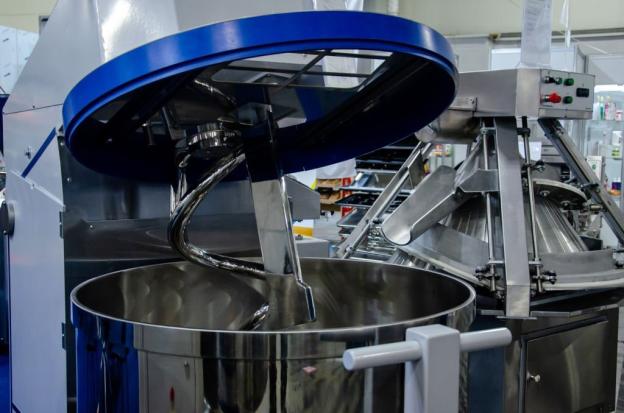
Mixing machines have been an essential tool for many industries for a long time. They are used to blend, emulsify, disperse, or homogenize various types of materials. Moreover, they are available in different sizes. Some are even customized to specifically cater to the needs of certain applications. Right now, they are used in industries ranging from food and beverage to chemicals and pharmaceuticals.
The process of mixing can be a daunting task, especially when you are dealing with a large number of materials. However, acquiring a mixer machine for industrial products is essential. It enables the processing of raw materials to become seamless, efficient, and less time-consuming.
In the meantime, let’s take a look at the top industries that rely on these mixing machines.
Beauty And Cosmetics
The cosmetics industry requires mixing machines for a number of reasons. Firstly, the production of cosmetics involves the precise measurement and mixing of various ingredients.
These ingredients may be in solid, liquid, or powder form and require a high level of accuracy to achieve the desired consistency and texture. Secondly, the mixing machines ensure a homogenous blend of the ingredients, preventing the presence of lumps, air bubbles, or inconsistencies in the final product.
Thirdly, mixing machines reduce the overall production time and costs, as they are capable of mixing large quantities of ingredients in a short amount of time. This is beneficial for companies that have a high-demand market. Ultimately, the use of mixing machines in the cosmetics industry is essential for producing high-quality, consistent, and cost-effective outputs.
Food Processing
Food processing is a complex and multi-step procedure that is essential to the production of high-quality food products. One of the vital elements in this industry is mixing, which involves blending different ingredients to create a homogenous mixture.
Mixing machines are, therefore, critical to the food processing industry as they enable the consistent and efficient blending of ingredients. These machines come in different types and sizes, depending on the specific food product requirements.
Mixing machines allow for the precise control of mixing speed, time, and intensity, resulting in uniformity of texture and taste.
Additionally, they allow food manufacturers to increase production rates and reduce labor costs, making them an essential component in modern food processing.
Water Treatment Facilities
Aside from using socket weld gate valves and industrial pipes, water treatment facilities also rely on the service of these mixing machines.
Specifically, water treatment facilities use mixing machines to ensure that the water is properly treated and safe for consumption. These machines are designed to mix various chemicals and substances with water to remove impurities and harmful bacteria.
Moreover, they promote the even distribution of chemicals throughout the water, ensuring that all contaminants are removed. The machines are especially useful for larger water treatment facilities where manual mixing would be impractical and time-consuming. Interestingly these industrial components can also be used to adjust the pH levels of the water, ensuring that it is not too acidic or alkaline.
Engineering And Construction
The engineering and construction industries require mixing machines for various reasons. One of the primary reasons is to ensure the homogeneity of materials used in construction, which is essential for the structural integrity of any building.
Mixing machines help to ensure that the materials are evenly mixed, reducing the risk of weak spots that could cause the structure to fail. Additionally, mixing machines can help to increase the efficiency of construction projects by reducing the amount of time and labor needed to mix materials manually.
By using mixing machines, engineers and construction professionals can save time and improve the quality of their work, ultimately leading to better results and more successful projects.
Pharmaceuticals
Pharmaceutical industries require mixing machines for a variety of reasons. The main reason is to ensure consistent and homogeneous mixing of active ingredients, excipients, and other components in the production of pharmaceutical products.
Mixing machines are used to blend different materials to form a uniform mixture, which is then processed further to produce tablets, capsules, syrups, or suspensions. These machines are designed to meet the strict requirements of the pharmaceutical industry, including good manufacturing practices, quality control, and regulatory compliance.
Additionally, mixing machines can help reduce the risk of contamination and counterfeiting. They ensure that the final product meets the required specifications for purity, potency, and stability.
Not only do they help ensure that active ingredients, excipients, and other components are mixed consistently and homogeneously, but they also promote good manufacturing practices, quality control, and regulatory compliance.
Furthermore, mixing machines help to reduce the risk of contamination, ensuring that the final product is of the highest purity, potency, and stability.
Final Thoughts
The importance of high-quality mixing machines cannot be overstated. Industries rely on efficient and reliable mixing from pharmaceuticals to food and beverage to chemical manufacturing to ensure product quality and consistency.
Investing in the right mixing equipment can improve product quality, reduce waste, increase operational efficiency, and lower costs in the long run. As technology evolves, additional innovation and customization in the realm of mixing machines could take place, resulting in a more tailored means of catering to the specific needs of each industry.



